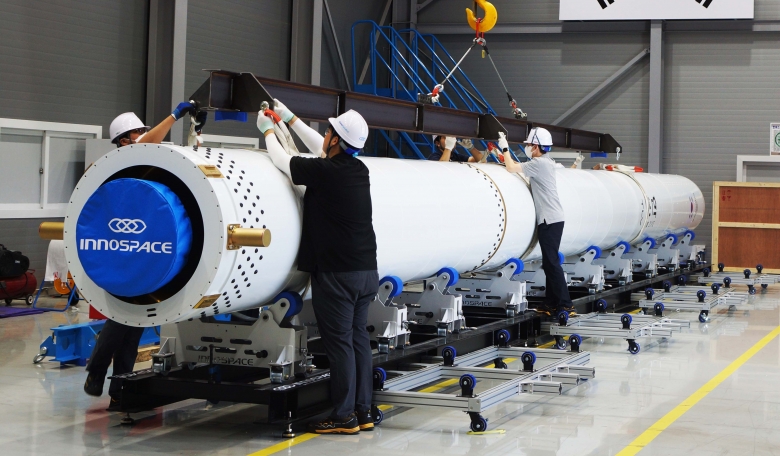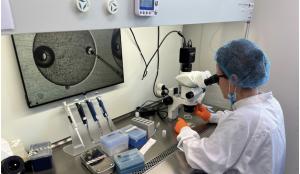South Korean space startup specialising in small launch vehicles INNOSPACE has unveiled the nation's new civilian test launch vehicle, HANBIT-TLV.
First launch of HANBIT-TLV, to verify the flight performance on a suborbital test flight up to an altitude of 100 km, is planned for December from the Alcântara Launch Center in Brazil.
HANBIT-TLV is a 15-ton thrust, single-stage hybrid liquid and solid propellant rocket developed by INNOSPACE in South Korea. It has a height of 16.3 metres, a diameter of one metre, and weighing 9.2 tons.
INNOSPACE says the use of both solid fuels and liquid oxygen helps simplify the structure and delivers the advantage of thrust control. HANBIT will use high-performance and non-explosive paraffin-based propellants along with a patented electric motor-driven oxidizer pump.
"We have approximately six months left before the first test launch scheduled for December this year,” said Soo Jong Kim, CEO of INNOSPACE. “Our ultimate goal is to use the small satellite launcher as a vehicle to deploy satellites in sun-synchronous orbits at low cost.
“Starting with the test launch this year, we will continue to develop technologies to enter the global satellite launch service market as soon as possible, and keep strengthening strategic cooperation with the space industry and global commercialization capabilities."
INNOSPACE signed an agreement May 3, 2020, with the Brazilian Department of Aerospace Science and Technology (DCTA) to launch SISNAV, an inertial navigation system which will be carried as a payload on HANBIT-TLV.
On May 27, the company installed a new portable Coalesced Launch System (CLS) at its Cheongju plant in South Korea and performed tests to verify interface integrity and systems compatibility between CLS and HANBIT-TLV.











